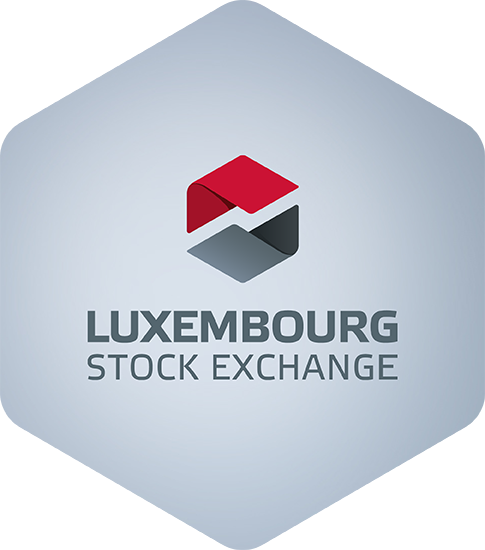3 questions to Paula Redondo Pereira

Meet the LGX Academy lecturers
Whether you are already part of the LGX Academy or would like to know more about the market, our expert lecturers are bringing you an outlook of the sustainable finance sphere.
In this part, Paula Redondo Pereira, Head of Regulatory Affairs at the Luxembourg Stock Exchange, shares her views on teaching, the importance of being involved in expert groups and the need for harmonised taxonomy and standards.
Your regulatory expertise is a great asset to the LGX Academy. What drove you to turn this expertise towards teaching?
When the opportunity to become an LGX Academy lecturer came about, I wanted to exploit my skills and expertise to bring the fullest extent of value to our course participants.
First of all, I believe a strong academic background, thus extensive theoretical knowledge, is important to understand the basics of teaching. In addition to this point, the experience that I have gained throughout my career, working in public bodies, government institutions and private firms, helped me build a solid expertise in EU affairs and regulatory matters. Lastly – and just as importantly – I think the way you convey your message is just as important as the message itself and acting as a lecturer put my communication skills to the test.
I strongly believe that sustainable finance goes hand in hand with financial literacy. If we want to successfully foster more sustainable debt instrument issuance and cater to more ESG investors, we need to help market participants and the general public understand what sustainable instruments are, how the regulatory framework around them works and how they impact the real economy. The Luxembourg Stock Exchange (LuxSE) is committed to spreading awareness of sustainable finance and the LGX Academy is actively contributing to tackling the knowledge gap.
As a professional, I have learnt a lot with my colleagues at the LGX Academy who embarked on this journey with a very passionate and mission-driven approach, and with our LGX Academy course participants. The one thing that is always enriching in this position is to receive unexpected – and at times, challenging – questions that push me to reconsider some of my beliefs and look deeper into some of the topics covered in our courses.
In 2018, you were a member of the European Commission’s Technical Expert Group (TEG) on Sustainable Finance. Why is it important for you and for the Luxembourg Stock Exchange to be involved in this and similar expert groups?
Shortly after establishing the Luxembourg Green Exchange in 2016, LuxSE and its representatives were appointed to several international working groups, within industry associations, such as ICMA, the International Capital Market Association, FESE, the Federation of European Securities Exchanges or the WFE, the World Federation of Exchanges. The High-Level Expert Group on Sustainable Finance and later on, the Technical Expert Group on Sustainable Finance were particularly relevant as they were mandated by the European Commission to discuss and prepare recommendations on how to scale up sustainable finance and establish related policies on a pan-European level. Such involvement gave us the opportunity to further apply and share our expertise in the sustainable finance and fixed-income sectors, in particular, and contribute to defining new common policies.
The consultation of stakeholder practitioners and market players in the definition of new regulatory frameworks at political level is essential to grasp all the technicalities of the topic. Allowing technical experts to bring their own views and unique expertise to the table should be considered a best practice when designing and shaping future policies and regulations.
Being part of all these working groups is an honour that I find tremendously rewarding. The diversity of sectors and backgrounds represented by the participants is an opportunity to be constantly challenged by others and learn new perspectives and processes. I am a firm believer in the need to listen actively and try to understand the views of your counterparts in order to find wise and acceptable compromises and define the best solutions for the market and the society.
There are a lot of debates and opinions around the need for a global taxonomy and standards in the market. Why is a common language so important in your opinion?
We should never lose sight of our main goal, which is to tackle climate change and prevent its negative effects worldwide. The financial sector has an indispensable and important role to play in redirecting private capital towards projects with positive social and environmental outcomes and helping governments reach the sustainability objectives set globally.
Climate change does not discriminate. It is a global challenge with global consequences that require global action. If we are to fight it efficiently, we need to speak as one and act as one, which is why a common regulatory framework is needed. The lack of standardisation of taxonomies and standards not only hinders issuances by making the processes more complicated for issuers, but it also creates confusion and mistrust among investors who would like to invest in sustainable investment products. A common language would help market participants to compare products and services with precision, so that we have an efficient demand-supply equation within and across jurisdictions.
The one analogy I like to refer to when explaining this topic to our LGX Academy students is the one of food labels. When consumers want to buy an organic product, they go to their local supermarket and look for products with European labels that prove that the products are organic. Investors who want to invest in sustainable securities should have access to the same level of transparency. Creating common taxonomies and standards, recognised at the international level, would provide more transparency to investors and help prevent greenwashing, thus increasing their trust in the sustainable finance market and encouraging them to invest in more sustainable products.
Written by Lorraine Bedo

